Taiwan Works to Internationalize Cultural/creative Industry
2012/11/20 | By Judy LiThe island's cultural/creative strength has won international recognition in the form of top prizes awarded to local designers at major design competitions
With its traditional products suffering a shrinkage of exports, Taiwan has been working hard to develop its cultural/creative industry in recent years. One of the major strategies being used to achieve that goal is to help local businesses tap the world market.
The government began placing increased emphasis on the long-neglected cultural/creative industry (neglected because most of the industry's operators were individuals or small businesses that focused mainly on the local market) a decade ago. But a few of the businesses involved wanted to make themselves world known, and a few have successfully mounted the international stage.
The upgrading of the Council for Cultural Affairs to the Ministry of Culture (MOC) in May 2012 will help give the cultural/creative industry a boost. The MOC has already organized the 2012 Taiwan International Cultural & Creative Industry Expo (the second of its kind; the first was held in 2011), in cooperation with the General Chamber of Commerce, which was held on Oct. 18-21, 2012 at the Nangang Exhibition Hall of the Taipei World Trade Center.
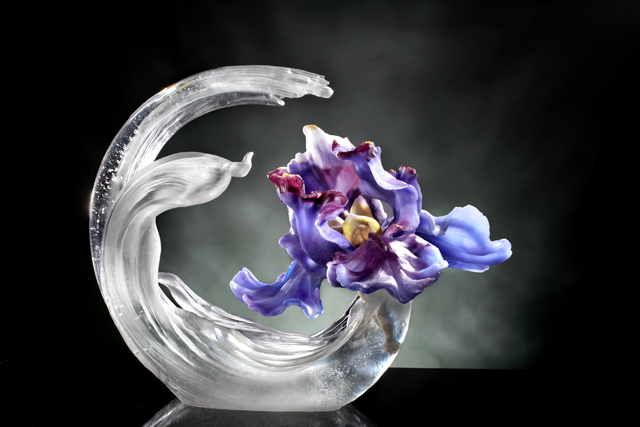
One of the exhibitors was the Dapili International Marketing Co., whose general manager, Johnson Chiu, said that the hand puppets made by his company generate revenues of NT$500 million (US$16.67 million) in Taiwan's domestic market every year. “We hope to negotiate on copyrights and make it into the mainland Chinese market,” Chiu stated, “as Dapili puppet shows have many fans in Shanghai and Beijing who watch the programs mostly via the Internet.”
Awards Recognize Design Excellence
Taiwan's cultural/creative strength has won international recognition in the form of top prizes awarded to local designers at major design competitions, such as Germany's iF and red dot design award and Japan's Good Design Award. Taiwan has also won numerous patents and invention awards.
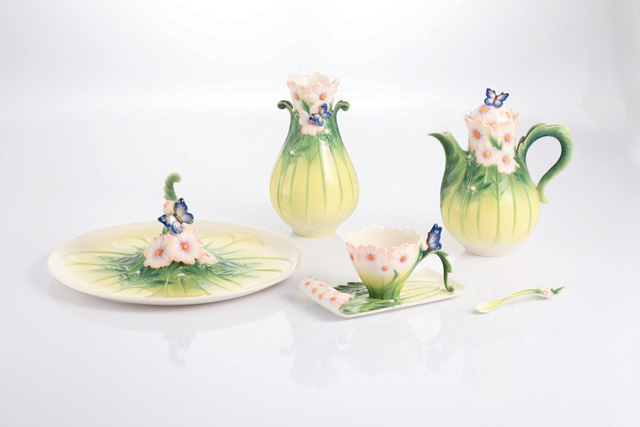
Liuligongfang was created in 1987 in the north-coast town of Tamsui. It was the first crystal glass workshop on the island and had a difficult beginning, but today it has developed into one of the most famous crystal-glass brands in the world and has expanded its operations to mainland China, Singapore, and Malaysia. The company sells its crystal glass artworks in around 70 galleries around the world, including one each in San Francisco and New York.
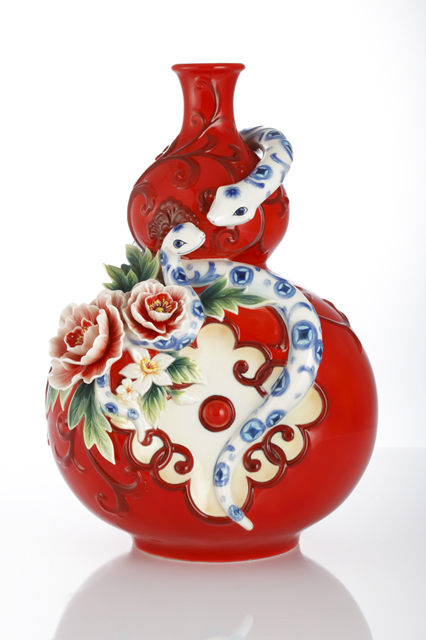
The company's revenues amount to about NT$1.7 billion (US$56.67 million) annually.
The Franz Collection, founded in 2002, designs, creates, and markets a variety of functional high-end porcelain home decorations as well as fashion accessories. The company's founder and chief executive, Franz Chen, stresses that each of his products is inspired by the beauties of nature and art, both ancient and modern, and is hand made. “Our products feature an under-glaze technique that ensures that their beautiful rich colors will last for thousands of years,” he comments.
More Cultural Applications Needed
“Taiwan has done a good job in maintaining its cultural heritage,” Chen goes on, “but it is still not strong enough in cultural applications. The government should work harder to enhance interchange and support between culture and products, so as to strengthen the international competitiveness of our cultural/creative industry.”
The Franz Collection operates on both sides of the Taiwan Strait, with design and research based in Taiwan and production in Jingdezhen, the traditional porcelain capital in China's Jiangxi Province. “In addition to high-tech companies,” Chen continues, “Taiwan's cultural/creative sector is seeing great opportunities across the strait. Taiwan is stronger in creative power and mainland China has a larger market, lower labor costs, and skilled workers.”
The company's revenues in China have grown at an average annual pace of 70% since it entered that market in 2005. Around the world, its products are sold in 56 countries and regions; they have won a number of international awards, including the “Best in Show” gift award at the New York International Gift Show, “Best Ceramic Gift” from the U.K., and “Sea of Excellence for Handicrafts” award from the United Nations Educational, Scientific and Cultural Organization (UNESCO).
Franz Collection products are sold in 6,000 outlets around the world, and global revenues total nearly NT$3 billion (US$100 million) annually.
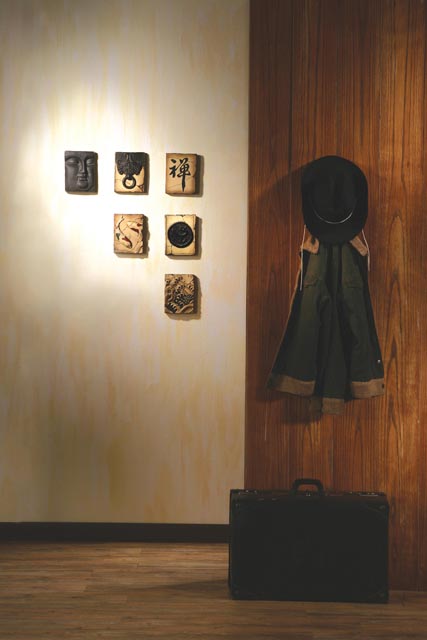
The company owns three brands: “Tales by Pave” (for decorative bricks), “Giimmo” (toys), and “iZware” (porcelains). Tales by Pave bricks are rooted in the rich cultures of Asia; as far back as 2000 B.C., at the beginning of the Han Dynasty, historic events were commemorated on stone plates. Artilize has been inspired by these works of art and creates square and rectangular decorative items that are rooted in ancient tradition but in tune with modern life.
“A textured base gives these items a solid look and feel,” says the company's chief executive officer, Tony Tseng, “and this contrasts gracefully with their exquisite design and oriental beauty.”
Collectors' Items
These porcelains cover a wide range of products, including vases, lamps, pots, cups, bowls, jars, dishes, and trays. They have achieved popularity in the global market and are treasured by private collectors.
The company cooperates with other producers in China and Southeast Asia to develop products that are in demand in local markets. Its products have won honors at numerous exhibitions around the world, including the Taiwan Product Show, International Furniture Fair Tokyo, Hong Kong Houseware Fair, Maison & Object (Paris), and International Frankfurt Gift Show.
Artilize began developing the market in mainland China in 2008, around the time of the Beijing Olympics. “The world is looking to the Orient and its fashions and arts,” Tseng comments. “Mainland China is so rich in resources, and so many big events take place there, that it is considered to have huge potential as a market for cultural/creative items.”
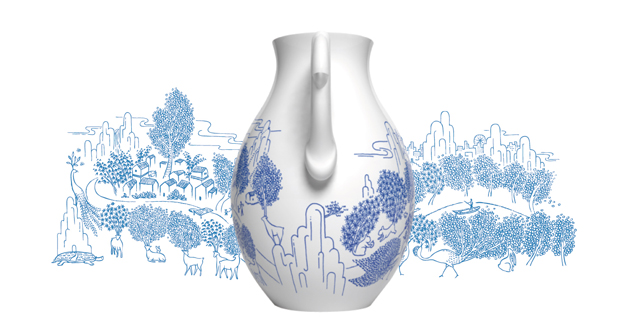
Artilize not only sells products under its own brands but also accepts ODM orders from such clients as museums, airlines, and other well-known companies.
The company now has eight exclusive stores in Taiwan and China, plus more than 500 sales outlets in Asia, the Middle East, Africa, America, and Australia.
The young (it is only seven years old) and relatively small Yuan Workshop Co. initially focused on the production of hand-made soap, but has recently extended its operation to include other bathroom products such as shampoo, hair conditioners, body lotion, and hand-cleaning lotion.
Doing No Harm
“All of our products are made of herbs and other natural materials that can eliminate dirt and kill bacteria, but will do no harm to the user,” says a senior official of the company. “We carefully select our materials, and are devoted to the production of items that are good for the users.”
Yuan Workshop's soap has become popular, and the firm now has about 700 sales outlets in Taiwan and 800 more in other countries around the world. Its annual revenue has reached NT$600 million (US$20 million).
Bonho Inc. was born only a couple of years ago but its products have already won 13 awards at home and abroad. It concentrates on the development and production of gift sets, mainly tea sets and cup sets, which are marketed under its own “Baohao” brand.
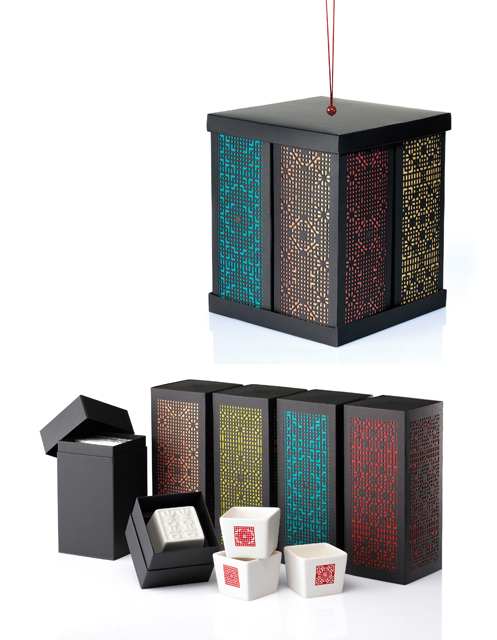
The tea set box, which looks like a delicate lantern, actually consists of four boxes that symbolize the auspicious Chinese written characters for fortune, prosperity, longevity, and happiness. The boxes are made of recyclable paper, and each contains choice Taiwanese mountain tea.
The company has expanded its marketing from Taiwan to Hong Kong and China. It has recently received orders for tea gift sets from two large Chinese banks as well as financial institutions in Hong Kong, which intend to present them to their VIP customers. (Oct. 2012)




